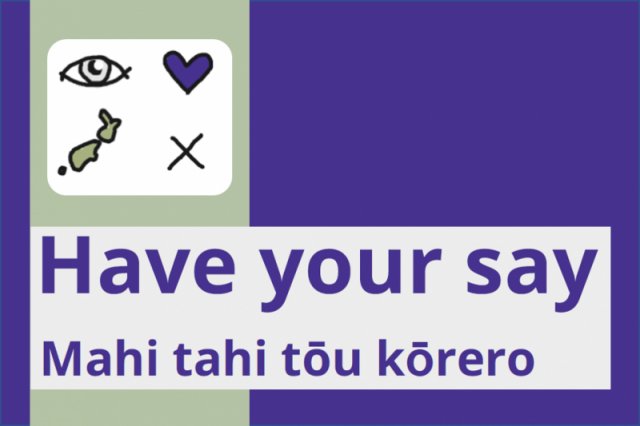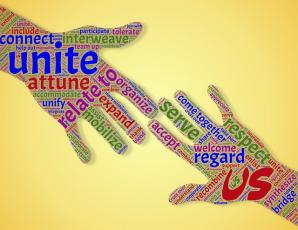Auditor-General calls for "Significant improvements" of Joint Venture
Tue 15 Jun 2021
The Office of the Auditor-General has published its report on the performance audit of the Joint Venture for Family Violence and Sexual Violence.

The Office of the Auditor-General (OAG) undertook an early performance audit of the Joint Venture to inform its development and to identify learnings for future similar arrangements. In his overview and introduction to the report, Controller and Auditor-General John Ryan agreed with feedback that the Joint Venture was not yet operating as effectively as it needed to, commenting that "To date, the joint venture approach has resulted in only limited change to the way government agencies are working together."
The audit focused on how the Joint Venture was set up, how well it is operating and its effectiveness. The audit involved reviewing documents, 45 interviews with Joint Venture staff and conversations with representatives from the interim Te Rōpū, and NGOs in the family violence and sexual violence sectors. While the OAG did not run a formal public consultation, interested individuals and agencies could contact the OAG to offer feedback related to the audit.
The Working in new ways to address family violence and sexual violence (2021) report outlines areas where significant improvement in the operation and function of the Joint Venture is required including:
Partnership with Māori - The audit found that different expectations about roles and the nature of partnership led to a breakdown in the relationship between the joint venture and the interim Te Rōpū:
"We were told that the interim Te Rōpū committed to the opportunity to work in genuine partnership with the Crown. However, the process of preparing the strategy did not, in their view, reflect a commitment to partnership or to transforming how government agencies work with Māori."
Following the end of their relationship with interim Te Rōpū, the Joint Venture has not yet developed "the kind of broad-based partnership with Māori that was intended to be an important part of its approach." The report calls for the Joint Venture to reset its relationship with Māori writing "...to fundamentally change how the Government works with Māori to reduce family violence and sexual violence, the joint venture needs to prioritise working with Māori and Ministers to agree what working in partnership means in the context of the joint venture."
Partnership with NGOs and stakeholder groups - Feedback from NGOs and stakeholder groups included that the role of the Joint Venture was sometimes unclear, that engagement with the Joint Venture was transactional rather than partnership and that organisations were unsure that engaging with the Joint Venture would ensure feedback effectively reached government agencies. The Joint Venture also struggled to understand and engage with the differences among NGOs and stakeholders. The report calls for action from the government agencies that form the Joint Venture stating "that the joint venture agencies also have a role in ensuring that NGOs and other stakeholders’ engagement with the joint venture is consistent, that it is mutually productive, and that it reflects a commitment to partnership.”
Lack of expertise and knowledge - The report highlights that to be effective the Joint Venture needs a resourcing model that includes people with the right skills, experience and knowledge, and that the current resourcing approach is not working. Due to limited funding, the Joint Venture Business Unit (JVBU) has relied on resources and support from the government agencies, resulting in varying responses. As a result, the work led by the JVBU "...does not consistently draw on the collective skills, knowledge, and experience that exists in the agencies." Additional challenges were raised with the use of contractors, including the time spent to identify and engage contracts, and at times, a lack of trust in contractors which resulted in extra time spent questioning their outputs:
"The joint venture’s current approach to resourcing work is ad hoc and project-based. To an extent, it also relies on outside contractors who have not always had the specific skills, experience, or knowledge that the work needs."
The report also noted that government agencies tend to prioritise their specific accountabilities over the cross-agency work and calls for each government agency to make resources available for Joint Venture work:
"This includes assigning sufficient staff to engage with the business unit and other agencies on collective work. It also means ensuring that those agency staff who are assigned to the joint venture’s work are able to prioritise that work."
Lack of shared responsibility and clarity of roles, and changes in staffing - While the Joint Venture has resulted in more collaboration and coordination between the government agencies, "...the joint venture needs to move beyond co-operation between agencies and co-ordination of their individual activities and towards integration and cross-agency action." The OAG also found that the agencies involved did not have a common sense of ownership, responsibility and accountability.
The audit found "...that setting up working relationships between the different parts of the joint venture was challenging because of regular changes of staff in the business unit." It also noted that there is still a lack of clarity about the role and authority including decision-making of the Joint Venture Director and Joint Venture Business Unit. The audit also pointed out that "A crucial challenge is that there has not been a strategy or first action plan to help guide the work of the joint venture. A strategy would clearly set out what the joint venture is working towards and the most critical strategic objectives in achieving this."
The five recommendations are:
"1. the Board of the joint venture continue work to ensure that all parties to the joint venture, from Ministers to staff in individual agencies, understand their roles and the roles of others in the joint venture;
2. the Board of the joint venture continue work to clarify, affirm, and communicate the role, authority, and function of the Director and the joint venture’s business unit;
3. the joint venture, led by the Board and the Director, continue its work with Ministers and Māori to agree what partnership looks like in the context of the joint venture;
4. the joint venture, led by the Board and the Director, work with stakeholders from the family violence and sexual violence sector to consider and agree how they will work together; and
5. the Board of the joint venture ensure that the joint venture has sufficient and appropriate resources to deliver the transformational change it was set up to achieve. This will include ensuring:
-that the joint venture business unit is able to access people with the appropriate skills, knowledge, and experience to support and lead collective work; and
-that staff within each joint venture agency have the capacity to prioritise joint venture work."
Minister for the Prevention of Family and Sexual Violence Marama Davidson responded to the report in an interview with RNZ, highlighting work that is already underway to address many of the issues identified in the audit. The Minister welcomed the findings, stating that the report "gives us a continuing mandate for the transformation that absolutely needs to happen."
In the OAG media release Auditor General John Ryan said “I intend to carry out further work to monitor the progress of the joint venture and its success in reducing family and sexual violence over the coming years.” The report notes that "We have not looked at the work programmes and interventions of the individual agencies as part of this audit. We might carry out work on these aspects of the joint venture in the future." Earlier this year the OAG asked for feedback on their proposed work plan which included work on family violence and sexual violence.
Update: The Office of the Auditor-General has published a literature review on family violence. The OAG commissioned Carswell Consultancy to complete the review and the report, Experiences of the family violence system in Aotearoa: An overview of research 2010 to early 2020 (2020). OAG has released a summary and the report on their website. The full report including the appendices with an annotated bibliography can be requested by emailing enquiry@oag.parliament.nz.
Related news
The government has launched work to develop a National Strategy and Action plans to eliminate family violence and sexual violence in Aotearoa New Zealand. The Joint Venture is coordinating this work. The Joint Venture is currently asking for feedback from tangata whenua, victim-survivors, communities throughout the country, service providers and individuals. Information about how to give feedback is on the Joint Venture website: violencefree.govt.nz/have-your-say/.
Related media
Family and sexual violence government venture: Auditor-General finds shortcomings, RNZ, 08.06.2021
Image: Florian Weichelt on Unsplash









